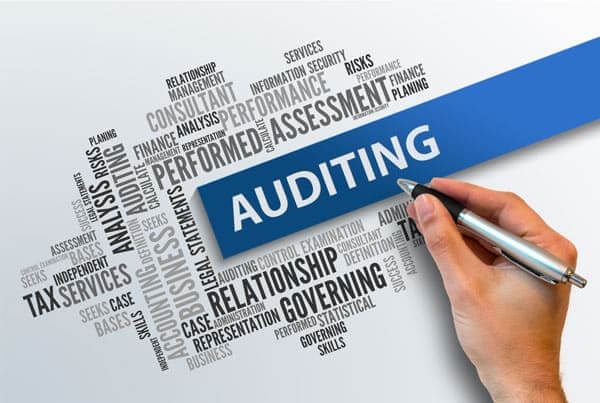Audit and Assurance is a hand in hand process. These two processes focus at evaluating the financial records of an organisation.

Audit and Assurance is nothing but the verification of company’s accounting records in accordance with the accounting standards and principles. In addition, it also emphasises on the accuracy of accounting records.
Let’s have a comprehensive view of the aforesaid terms to gain a better understanding to reduce the complexity associated with these two processes.
A brief explanation of the terminologies
- Audit
Audit refers to the process of close examination or inspection into the books of accounts by an auditor. This is in turn followed by physical checking of the inventory to ensure that the recorded transactions correspond to the department documents.
In context to Financial audit, it aims at checking the accuracy of financial statements to help increase the credibility of the organisation.
- Assurance
Assurance is the process of analysing and assessing the accounting entries and financial records.
Emphasising on the comparative analysis between the two terms:
Audit is the first step and Assurance is followed by an Audit. Moreover, Audit is carried out by an internal or external auditor whereas Assurance is done by an audit firm.
Audit and Assurance in Accounting
Types of Audit
- Financial Audit
It is the most commonly conducted type of audit wherein opinion is given on whether the accounts have been prepared properly or not.
In addition to this we have two more types of audit which are
- Compliance Audit
This type of audit ensures if the organisation is acting in compliance to the regulatory or internal standards.
- Operational Audit
This includes a detailed analysis of procedures, processes and results of an organisation with recommendations mentioning the scope of improvement.
All the audits can either be internal or external.
- Internal Audit
It is carried out by an organisation to maintain high standard of control within an organisation and lessen the work of an external auditor.
An internal audit is often an operational audit.
- External Audit
It is performed by an independent firm which conducts the audit process on behalf of its shareholders.
Examples include PricewaterhouseCoopers (PwC), Deloitte, KPMG and Ernst & Young.
Financial or Compliance audits are usually carried by external auditors.
Assurance is carried out with the purpose to review the financial data and procedures followed within a company to make sure that shareholder’s money is being well utilised.
How is an Audit Conducted?
An audit is conducted by a registered auditor. Further, compliance with the necessary industry standards is necessary.
Auditors perform two kinds of testing viz. Substantive Testing and Control Testing
- Substantive Testing
As the name suggests it refers to selecting a sample that help in producing the desired results.
In this type of testing the auditor selects a sample to see if it is representative of the expected result. For instance if the auditors want to test the check the sales figure, they might choose a number of sales and cross check the evidence of the sales figure mentioned.
- Control Testing
It refers to a reduction in the error rate or fraud in the company. For instance: If there is a requirement of two signatories wherein one fills the cheque and the other person signs it.
In companies where control testing is performed auditors can test the control rather than the sample of transactions.
Finally, a standard report is generated which comprises of an audit opinion.
Concluding paragraph
Accounting firms offer an array of professional services to its clients which includes audit, review along with other assurance and related services.
Assurance and Auditing help organisations produce high quality of financial information which in turn helps to increase the stability of the financial infrastructure.
So, Auditing aims at an ethical presentation of the financial reports which should adhere to the accounting standards and accounting principles. Assurance simply aims at checking the accuracy of the financial reports to see if there is no misrepresentation of the financial records and there is an adequate use of funds without any traits of dishonesty.
We focus at updating you with the most useful insights to make the toughest of concepts easiest for you. Keep following us for the most recent updates and topics.
